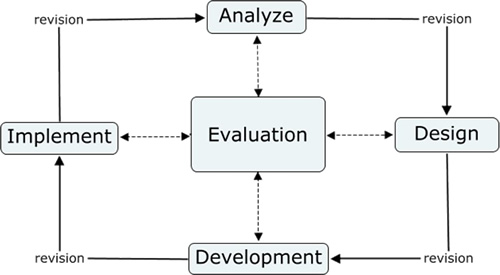Evaluate
Evaluation is embedded into all modules in our Approach, as recommended in the UK Government standard for teachers’ professional development (July 2016) ![]() . In addition a five level, research based, evaluation module is available to help you evaluate your own initiatives, with the potential to measure participants reaction, participants learning, organisational impact, participants use of new knowledge and impact on student outcomes.
. In addition a five level, research based, evaluation module is available to help you evaluate your own initiatives, with the potential to measure participants reaction, participants learning, organisational impact, participants use of new knowledge and impact on student outcomes.
What are the benefits?
The UK Government makes it clear in their standard for teachers’ professional development (July 2016) ![]() that schools should actively seek out external challenge of their thinking, and provide tools that allow participants to evaluate the impact of CPD on their practice. Catalysed can provide doctoral level trained researchers to carry out rigorous quantitative and qualitative analysis to meet this need, providing you with evidence to show your compliance.
that schools should actively seek out external challenge of their thinking, and provide tools that allow participants to evaluate the impact of CPD on their practice. Catalysed can provide doctoral level trained researchers to carry out rigorous quantitative and qualitative analysis to meet this need, providing you with evidence to show your compliance.
If used in conjunction with other modules, the Evaluate module also has the potential to look back on changes that have been made, and by mapping through to original surveys in the Analyse stage it can provide a quantifiable measure of progress. This allows individual and group reflection over progress, and planning for next steps to ensure continuous improvement.
"Educational technology is not a homogeneous ‘intervention’ but a broad variety of modalities, tools, and strategies for learning. Its effectiveness, therefore, depends on how well it helps teachers and students achieve the desired instructional goals."
S. M. Ross, et al. (2010)
 |
| Evaluation is central to the ADDIE approach, and rather than simply following on at the end is embedded in all phases |
How does it work?
Catalysed follows a research-based approach to evaluation, following the work of Guskey (2000) ![]() , and hence adopts a five stage model for evaluations:
, and hence adopts a five stage model for evaluations:
- Level 1: Participants reaction: Will the information be useful? Did the material make sense? Was the leader knowledgeable and helpful?
- Level 2: Participants learning: Did the learner obtain new knowledge and skills?
- Level 3: Organisation, support and change: What was the impact on the organisation? What support was provided to initiate change/s.
- Level 4: Participants use of the new knowledge and skills: How does the participant apply new knowledge and skills. How is this assessed?
- Level 5: Student outcomes. What is the impact on learners? Achievement, Confidence, Attendance, Behaviour, Self-esteem.
We use multiple tools in order to gather this data during other phases of work, which can include card sort activities, micro evaluations in workshops and teaching session (often using digital tools such as Socrative, Google Forms, or similar apps), and semi-structured interviews with key stakeholders.
I'd like more information about the Evaluate module
S. M. Ross, et al. (2010). `Educational technology research past and present: Balancing rigor and relevance to impact school learning'. Contemporary Educational Technology 1(1):17-35.
